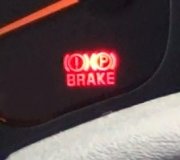Tuesday, June 22nd, 2010 AT 11:50 AM
Within the last 3 months I have had new bearings, calipers, pads, brake line, and rotors. Am now on the 2nd set of rotors and 3rd set of pads. Brake place I took car too has proven to be an absolute joke. Same problem everytime I pick the car up, which btw has been 6 different times. I am getting what appears to be a "crunching" noise in the passenger front brake. Only get the noise when I brake and doenst matter if I am turning or not. It is not the typical scraping noise you would here coming from a warped rotor. You can hear the noise with the revolution of the tire. I am at a complete loss as to what to look for to fix this. Gave up repair shop when after 6th time having it there, they threw up hands and said "I dont know". Advice. Anyone?


